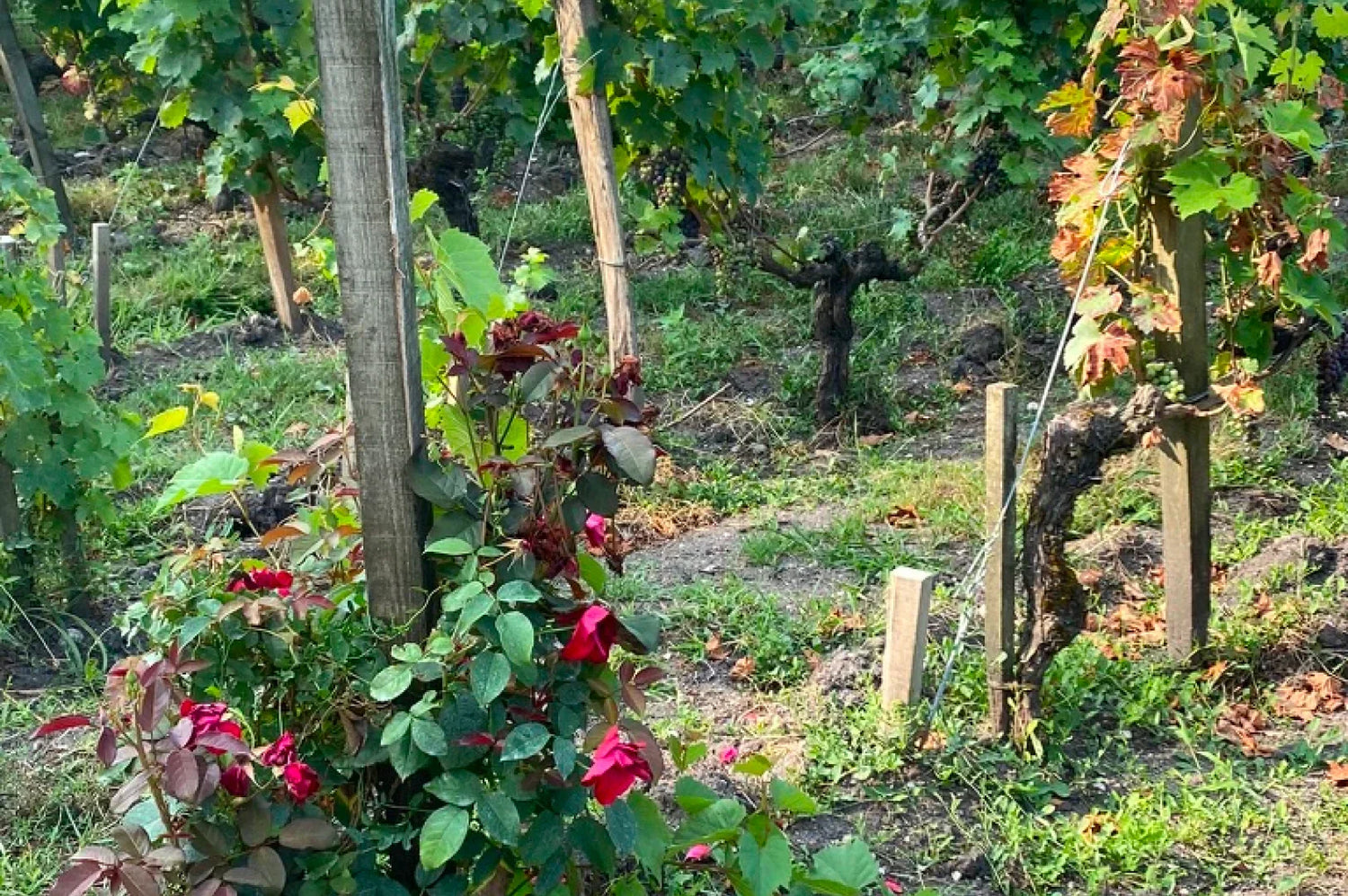A Guide to Eco-Friendly Winemaking
Wine production dates back to 6000 BCE, making it one of the oldest traditions in human history. Today, as consumers become more health-conscious and sustainability-focused, winemakers are embracing innovative techniques or revisiting ancient practices to align with these values. Let's explore the differences and key aspects of natural, organic, biodynamic, and sustainable wines, while touching on related topics like vegan wine, sulphites, and sustainable agricultural methods like permaculture and agroforestry.
Natural Wines: A Minimalist Approach
Natural wines emphasise minimal intervention in both the vineyard and winery. They are typically:
- Fermented with indigenous yeasts, naturally found on grape skins.
- Made without common additives like commercial yeast, sugars, or stabilisers.
- Often produced with little or no added sulphites (compounds used as preservatives).
Because natural wines avoid chemical manipulation, they can have a shorter shelf life compared to conventional wines. The goal of natural winemaking is to express the grape and terroir (the unique environmental factors of the vineyard) in its purest form. Many natural wines are also vegan-friendly, as they avoid animal-derived fining agents like egg whites or gelatin.
Natural wines are often vibrant and unique, with lively acidity and a "wild" or funky character. While the term "natural wine" is not legally defined, many natural winemakers adopt organic or biodynamic farming principles.
Organic Wines: Grown with Care for the Planet
Organic wines are crafted from grapes grown without synthetic pesticides, herbicides, or chemical fertilisers. The key principles include:
- Promoting soil health and biodiversity through sustainable agricultural practices like permaculture and agroforestry.
- Avoiding harmful chemicals that disrupt the vineyard's ecosystem.
- Minimising manipulation during the winemaking process to reflect the grape's natural character.
Organic wines are often free from many synthetic additives and may have reduced levels of sulphites compared to conventional wines. Certifications such as Ecocert (Europe) and USDA Organic (USA) provide assurance that wines meet rigorous organic standards. Additionally, many organic wines are vegan, as they use plant-based fining agents.
Biodynamic Wines: Farming in Harmony with Nature
Biodynamic farming treats the vineyard as a living, self-sustained ecosystem. Key practices include:
- Enhancing soil fertility through composting and natural preparations (e.g., herbal sprays).
- Aligning vineyard activities with lunar and celestial rhythms, as guided by the biodynamic calendar.
- Incorporating elements of agroforestry and permaculture to maintain ecosystem health.
Biodynamic wines often carry Demeter certification, a mark of compliance with these stringent standards. Many biodynamic wines are noted for their distinct sense of place, energy, and terroir-driven character. Like organic wines, they often avoid animal-derived inputs, making them suitable for vegans.
Sustainable Wines: Balancing Ecology and Community
Sustainability in wine production goes beyond organic and biodynamic methods to address broader environmental and social factors. Sustainable practices include:
- Water Conservation: Using efficient irrigation techniques, such as drip irrigation, and recycling water for vineyard operations.
- Biodiversity Preservation: Creating wildlife habitats and integrating agroforestry, which involves planting trees alongside vines to support balanced ecosystems.
- Energy Efficiency: Employing renewable energy sources like solar or wind power, and reducing greenhouse gas emissions.
- Soil Health and Agriculture: Adopting methods like permaculture to promote long-term fertility and reduce erosion.
- Social Responsibility: Supporting vineyard workers and local communities with fair wages, safe working conditions, and community-building initiatives.
Sustainably produced wines often overlap with organic and biodynamic practices but emphasise a broader commitment to long-term environmental stewardship. Certification programs like LIVE Certified and California Certified Sustainable Winegrowing identify wineries committed to these principles.
Permaculture and Agroforestry: Key Sustainability Practices
Permaculture is a holistic approach to agriculture that focuses on working with natural ecosystems rather than against them. It emphasises:
- Designing self-sustaining systems that mimic the patterns and relationships found in nature.
- Using techniques like companion planting, composting, and water harvesting to create a balanced and regenerative environment.
- Minimising waste and maximizing resource efficiency.
In vineyards, permaculture can involve planting cover crops to enrich the soil, creating natural pest control through biodiversity, and utilising organic compost to nurture vines sustainably.
Agroforestry combines agriculture and forestry by integrating trees and shrubs into vineyard landscapes. Benefits include:
- Soil improvement through enhanced organic matter and erosion prevention.
- Providing natural habitats for wildlife, including pollinators and pest-controlling insects.
- Reducing carbon emissions by capturing and storing CO2 in the trees' biomass.
Both permaculture and agroforestry align with the goals of sustainable wine production, promoting healthy ecosystems, reducing environmental impact, and enhancing the resilience of vineyards.
The Role of Vegan Wines and Sulphites
While not all wines are vegan, many natural, organic, and biodynamic wines avoid the use of animal-derived fining agents, making them a great choice for plant-based consumers. Vegan wines are clarified using alternative fining methods, such as bentonite clay or activated charcoal.
Sulphites, commonly used as preservatives to extend a wine's shelf life, are often minimised in these wine categories. However, wines labeled as "no added sulphites" may still contain naturally occurring sulphites produced during fermentation. Proper storage is essential for wines with reduced sulphite levels to maintain their quality.
Why Choose These Wines?
Natural, organic, biodynamic, and sustainable wines offer diverse flavour profiles while supporting environmentally conscious practices. These wines align with the growing demand for transparency, sustainability, and ethical production.
Explore Our Curated Selection
At Raravina, we celebrate the craftsmanship and diversity of natural, organic, biodynamic, and sustainable wines. Browse our collection and start your journey with wines that reflect a commitment to the planet, the people, and the palate.
Until next time, stay nosey.





